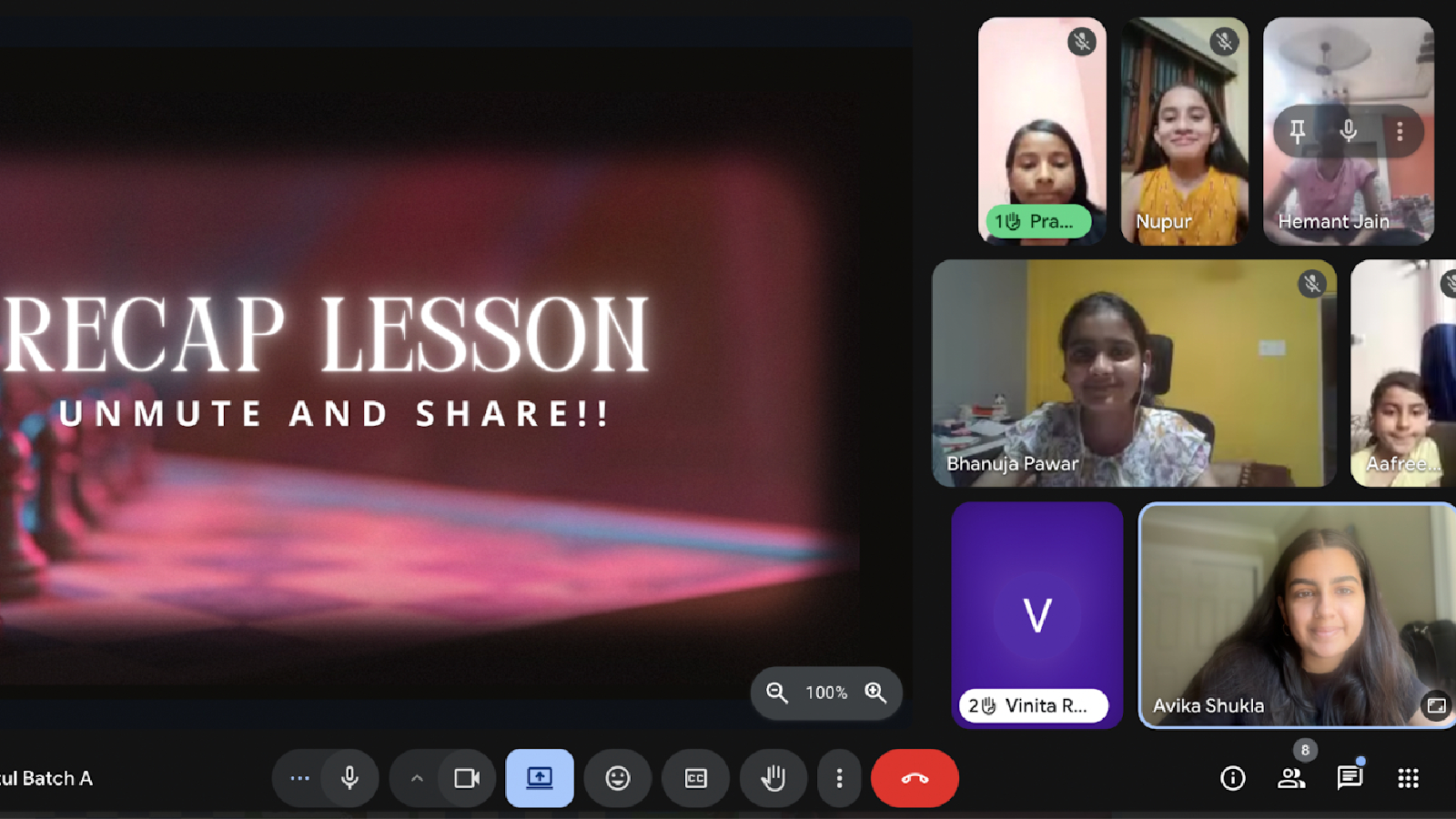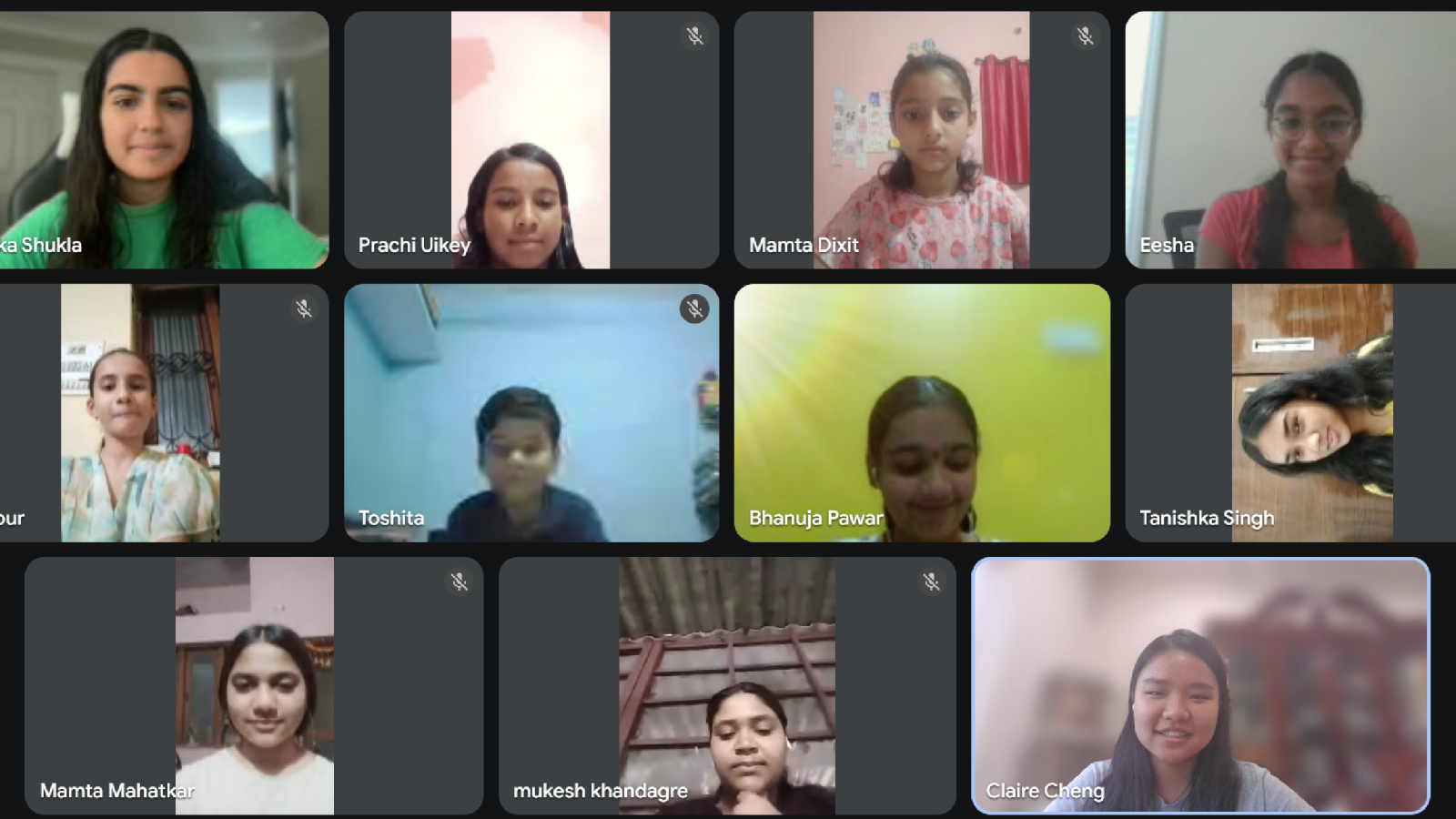It’s a Saturday evening and a Google Meet session is humming with frantic chess activity. A group of schoolgirls in a Madhya Pradesh town called Betul is hooked on to their cellphones from their homes. Chess pieces flit from one square to another on their screens as the instructor, Iris Mou, a Woman International Master (WIM) based in New York, pauses to ask the girls what their next logical move should be.
For two months, as many as 75 schoolgirls have attended online sessions such as these for a programme called Checkmate Betul. The initiative is the brainchild of a 16-year-old high-schooler from New Jersey, Avika Shukla, who was struck by the gaping gender disparity in chess and decided to do something about it.
“The initial thought regarding Checkmate Betul came when I was playing in chess tournaments and realised that I didn’t really have any female friends that played the sport. I realised this was a problem. When I used to play chess events in India — and then, even after moving to the US — I found the gender divide in chess very fascinating considering that it’s a mental sport,” says Shukla, currently specialising in electrical engineering and computer science at Edison Academy Magnet School in New Jersey.
“There should be no reason for a gender divide. I did some initial research and figured out that only one in seven chess players are girls. In my own personal experience in tournaments, if there are maybe 100 players, there will only be about five girls.”
After moving to the US with her parents seven years ago, Shukla got involved with an organisation called Queens United Chess, an initiative that focuses on teaching chess to schoolgirls.
“As part of that, we were teaching kids who were privileged and had other chess opportunities available to them. But while visiting Betul, I realised that similar opportunities were not there for girls. Kids there didn’t really have a concept of after-school activities or after-school clubs like we have in the USA. That’s how Checkmate Betul was conceived,” Shukla tells The Indian Express.
The idea was simple: get established women players to teach chess virtually across the year to schoolgirls in Betul — Shukla’s hometown which she visits for a month or two with her parents every year.
Story continues below this ad
Shukla calls the concept, “Girls teaching girls chess.” What is remarkable about the programme is that many of the eight trainers or mentors in Checkmate Betul are teenagers themselves and hail from various corners around the world. Mou, a WIM from New York City, is one of the top youth players in the US. Then there’s Woman Candidate Master Zara Majid, who hails from the Cayman Islands. There is also Christina Aziz, a FIDE arbiter and chess educator based in Gambia. The others who help with coaching are from New Jersey and California.
So far, seven schools from Betul have signed up and a few more are likely to join soon. The first session was held in July this year. Shukla first enlisted support from the principals of the seven schools to partner for the pilot project.
“We saw a great chance for girls from our school to get exposure to chess from good players. We saw many benefits for the girls. Learning the sport will help these girls with critical thinking skills as well,” says Sister Jojina, the principal of Little Flower Convent School, which has 25 girls in the sessions.

Big ambitions
Shukla also started reaching out to female players around the world via social media asking if they would be interested in offering chess coaching to schoolgirls in India. Shukla says that since she plans to pursue engineering, her chess initiative will not directly help her earn any extra credits. But she’s glad that running the programme has helped her with soft skills like leading an international team.
Story continues below this ad
The initiative also has assistance from Chess.com, which provided the schoolgirls premium subscriptions to the ChessKids app for use on their cellphones.
A regular online session of Checkmate Betul lasts around 90 minutes with one of the mentors explaining basic concepts like pins, forks and checkmating patterns via Google Meet. It’s an interactive session where the girls answer which move is the best based on the positions on the board.
Tanishka Singh Verma, a Standard XII (PCM) student, a regular in the classes, says she knew a bit of chess, but after the sessions, has taken a bigger interest in the sport.
“Getting to learn concepts from international players has been great. I’ve learnt something new in every class. The way of teaching in these classes is very helpful,” she says.
Story continues below this ad

Rather than a session just being about chess, the girls are also encouraged to ask questions about their own lives and career paths.
“The idea is to expose these girls to other role models, because part of the problem that we noticed in the girl chess community was that there was a lack of genuine role models that one can easily connect with,” says Shukla.
Each session ends with the girls being given ‘homework’ of puzzles, which they solve using the ChessKids app. The girls are divided into three batches around the week — Monday-Wednesday, Tuesday-Thursday, Wednesday-Saturday — based on their preference.
After only two months of teaching, there is already talk of getting the players to compete in online tournaments from November.
Story continues below this ad
“The challenge was how we can take these girls from being beginners to playing their first tournaments soon. We have a few students that left us very pleasantly surprised with the promise they’ve shown, considering we started to teach them from square one,” Shukla adds.
There are also plans to expand the programme. Shukla says she’s already been approached by Wisdom World School in Madhya Pradesh’s Katni. But the ultimate goal is to try and expand past state borders.
“We want to connect with girls in India who play chess to see if they can start their own ‘Checkmate Chapters’ in their schools with our curriculum to take this across India,” says Shukla.


![https://primexbt.investments/start_trading/?cxd=459_549985&pid=459&promo=[afp7]&type=IB](https://tradinghow.com/wp-content/uploads/2025/02/primexbt-markets-e1738588646201.jpg)
![https://primexbt.investments/start_trading/?cxd=459_549985&pid=459&promo=[afp7]&type=IB](https://tradinghow.com/wp-content/uploads/2025/02/primexbt-markets.jpg)
![https://primexbt.investments/start_trading/?cxd=459_549985&pid=459&promo=[afp7]&type=IB](https://tradinghow.com/wp-content/uploads/2025/02/PrimeXBT-Trading.jpg)










